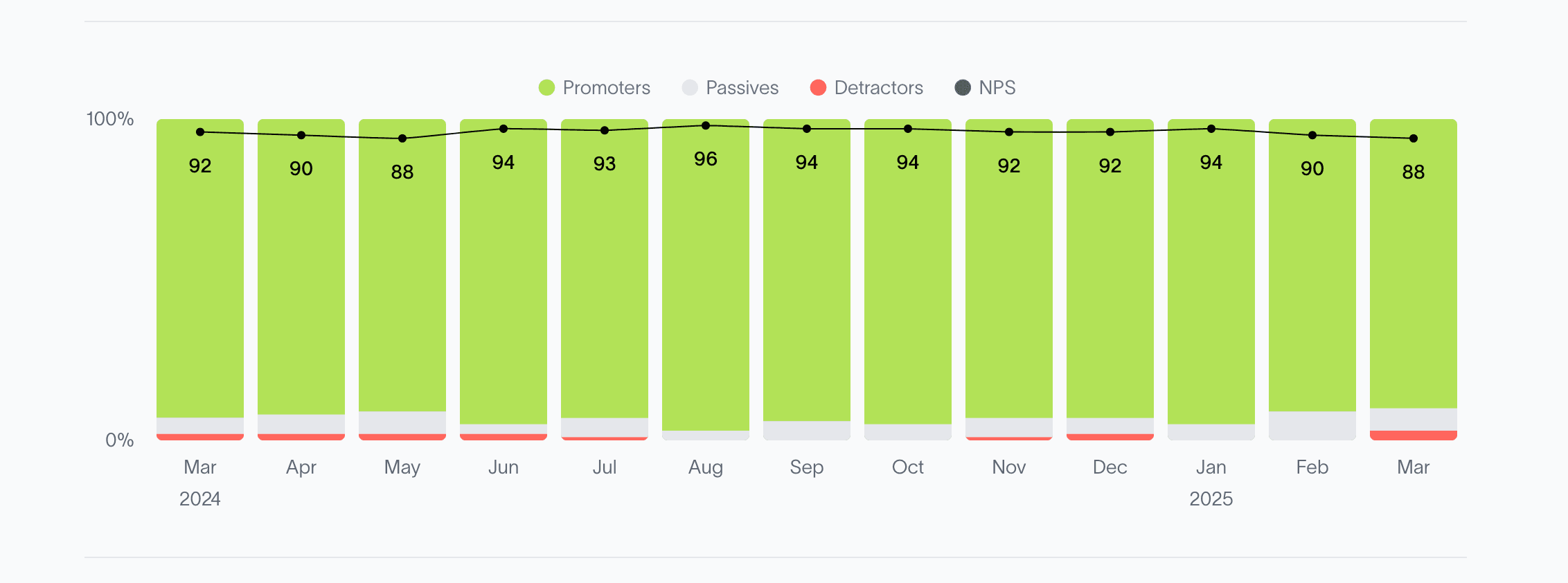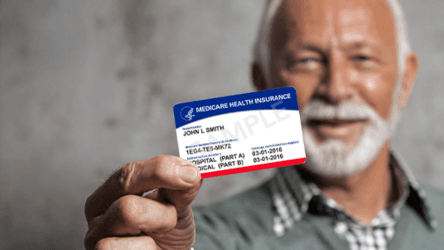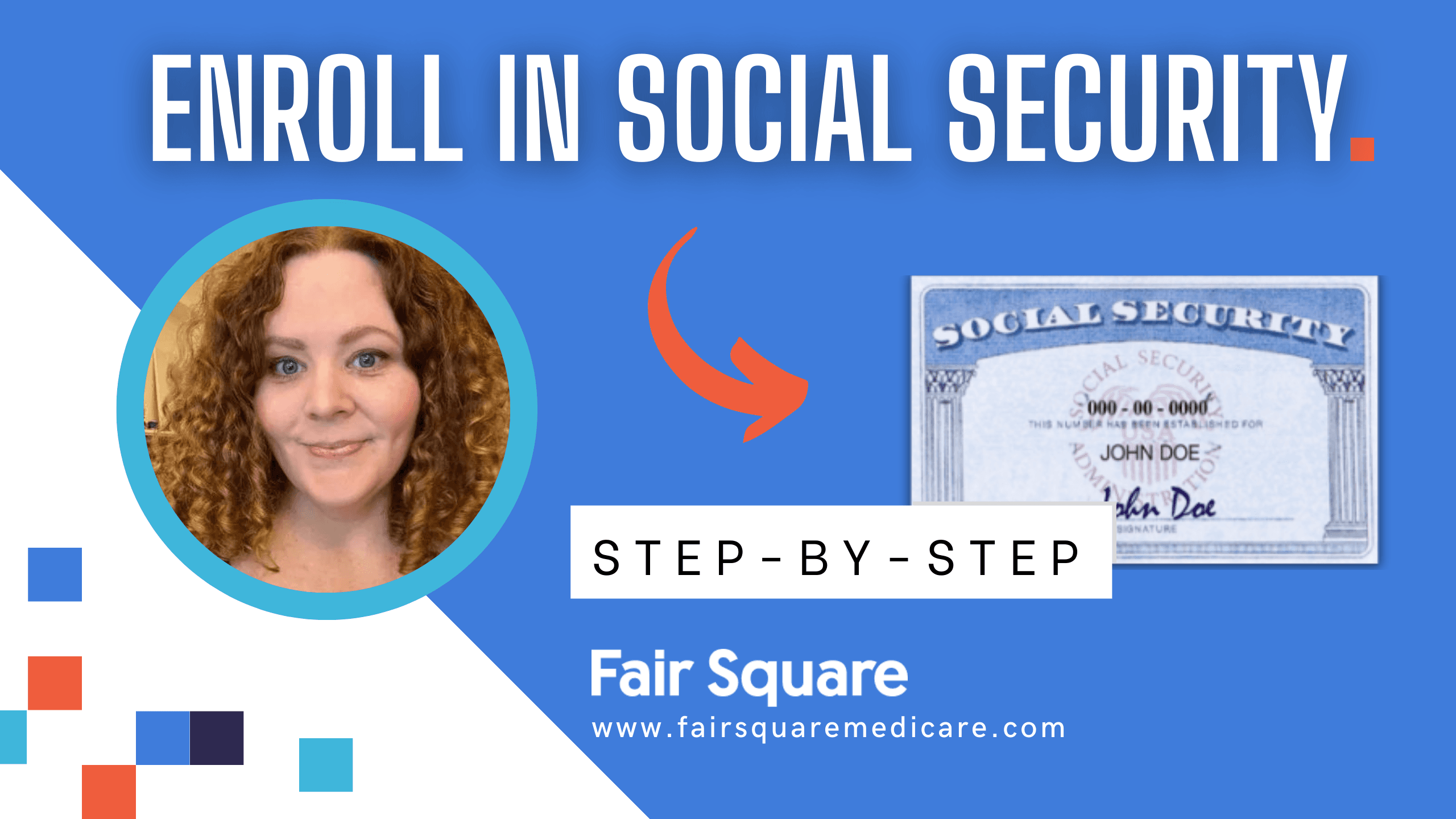The Ins and Outs of Mental Health: Costs and Coverage for Different Types of Care
[Note: If you or someone you know is in crisis, call or text 988 or chat at 988lifeline.org
(the free and confidential Suicide & Crisis Lifeline). For immediate medical emergencies, call 911.]
Speak with a Medicare Advocate
Considering the challenges of the last few years, it is important to remember that your healthcare cannot and should not be separated from your mental well-being.
It's normal to feel low every once in a while. But if this sadness — paired with persistent tiredness or a lack of interest — continues for weeks or months, you might consider seeking mental health care.
In honor of World Mental Health Month, let's talk about the importance of mental health care and how to get coverage.

World Mental Health Day | United Nations
What Is Mental Health?
Mental health refers to our emotional, psychological, and social well-being.
It affects how we feel, think, and act (i.e., how we cope with stress, relate to others, and make decisions).
Good mental health helps us handle stress and navigate life's challenges. But sometimes, keeping our minds healthy is easier said than done.
That's why we have mental health care!
What is Mental Health Care?
Mental health care involves services used to diagnose, treat, and support mental health conditions.
Examples include:
Psychotherapy
Counseling
Inpatient care
Support groups
Prescription medications
When Should I Seek Mental Health Care?
1. You Need Help Managing a Mental Health Condition
You may benefit from mental health care if you have a mental health disorder that affects your mood, thinking, and behavior — such as:
Depression
Anxiety
Schizophrenia
Eating disorders
Addictions
Mental health care can help you manage/treat the following symptoms:
Feeling sad, hopeless, or worthless
Struggling with sleep
Feeling confused or disoriented
Having trouble concentrating or making decisions
Avoiding social situations
Having suicidal thoughts
Feeling unusually tired
Lacking interest in activities you once enjoyed
Losing your appetite
Abusing alcohol or drugs
2. You Need Help Navigating Life Changes
Mental health care is not only for those with diagnosed mental health disorders.
It also helps individuals dealing with life transitions or situational stress, such as:
A career change
Moving to a new place
Feeling isolated during the COVID-19 pandemic
These situations can happen to anybody — regardless of their mental health status. Many people can benefit from receiving help with unfamiliar or stressful situations.
Does Medicare Cover Mental Health Care?
Yes!
Original Medicare helps pay for both outpatient and inpatient services, as well as prescription drugs.
If you have a Medicare Advantage Plan
What Services Does Original Medicare (Parts A and B) Cover?
1. Inpatient Mental Health Care
Medicare Part A covers inpatient care — in both general and psychiatric hospitals.
It includes the following services:
Semi-private rooms
Meals
General Nursing
Drugs
Other hospital services/supplies as part of your inpatient treatment
However, Medicare doesn't provide coverage for certain inpatient services:
Private duty nursing
A phone or television in the room
Personal items — toothpaste, razors, etc.
A private room (unless medically necessary)
2. Outpatient Mental Health Care
Medicare Part B covers outpatient visits to:
Clinics or doctors
Therapists
Psychiatrists
Clinical psychologists
Clinical social workers
Clinical nurse specialists
Nurse practitioners
Physician Assistants
It also includes the following outpatient services:
Depression screening once a year
Individual and group psychotherapy
Family Counseling
Testing to find out if you’re getting the services you need
Psychiatric evaluation
Medication management
Administering prescription drugs that can't be self-administered, like injections
Diagnostic tests
Partial hospitalization
A "Welcome to Medicare" visit — a one-time preventive visit within the first 12 months you have Part B
A yearly “wellness” visit
However, Medicare doesn't cover some outpatient services, such as:
Meals
Transportation
Support groups that bring people together to talk/socialize
(This is different from group psychotherapy, which is covered)
Testing or training for job skills that aren’t part of your mental health treatment
For Medicare to cover your outpatient services, your doctor or healthcare provider must accept the Medicare assignment.
This is the agreement between a doctor and Medicare regarding fees
A doctor who accepts an assignment agrees to charge you no more than the amount Medicare has approved for that service
Does Medicare Cover Prescription Drugs for Mental Health?
Yes. Medicare provides prescription drug coverage if you're enrolled in a plan that covers prescription drugs, such as:
Medicare Part D
Medicare Advantage Plan (that includes prescription drugs)
Medicare drug plans generally cover most antidepressant, anticonvulsant, and antipsychotic medications (with a few exceptions
Each drug plan covers the drugs mentioned in its formulary.
If your doctor prescribes a medication that your plan's formulary doesn't cover, you can request a
coverage determination
(including an exception)Medicare drug plans may change their formulary throughout the year. If you're already taking a drug that will no longer be covered, your plan will notify you in advance
Know your plan’s coverage rules and rights before enrolling in a drug plan. Compare various drug plans
Does Medicare Cover Substance Abuse Services?
Yes. Medicare covers screenings, services, and programs for substance use disorder, including:
1. Alcohol Misuse Screening and Counseling
Adults who use alcohol but do not meet the medical criteria for alcohol dependency can get one free alcohol misuse screening each year.
In addition, you can get up to four brief face-to-face counseling sessions per year if your primary care provider determines you are misusing alcohol.
To get coverage, ensure you get counseling in a primary care setting (like a doctor’s office).
2. Tobacco-Use Counseling and Prevention
If you're having difficulty quitting tobacco, Medicare Part B pays for up to 8 smoking and tobacco-use cessation sessions for one year.
A qualified doctor or Medicare-approved practitioner must provide the services.
3. Opioid-Use Treatment Services
Medicare covers treatment services for opioid use disorder, including:
Medications
Substance use counseling
Individual and group therapy
Drug testing
Intake activities
Periodic assessments
Opioid antagonist medications
Overdose education
To qualify, you must sign up for a program with a Medicare-enrolled provider. Talk to your doctor or visit the Medicare website
Does Medicare Cover Partial Hospitalization?
Partial hospitalization is a daytime outpatient program that doesn't involve overnight stays.
It's not as involved as inpatient care, but it's more comprehensive than what you'd get in a doctor's or therapist's office.
Medicare may cover partial hospitalization under certain conditions:
If your doctor certifies that you would otherwise need inpatient care
If the program is provided through a hospital outpatient department or community mental health center
If your doctor and the program accept the Medicare assignment
How Much Does Mental Health Care Cost?
Medicare cost depends on the type of mental health service you need and your specific healthcare plan.
Let's dive deeper into the costs for those with Original Medicare:
Cost of Inpatient Services (Medicare Part A)
The exact cost depends on each benefit period.
A benefit period begins when you're admitted to a general or psychiatric hospital as an inpatient
It ends the day you leave the hospital or after 60 days
The amount you pay for each benefit period in 2023 are as follows:
$1,600 deductible
Days 1–60: $0 coinsurance per day
Days 61–90: $400 coinsurance per day
Days 91 and above: $800 coinsurance per each "lifetime reserve day". Lifetime reserve days begin after day 90 for each benefit period (up to a maximum of 60 reserve days over your lifetime)
Each day after the lifetime reserve days: All costs
Note: If you're in a psychiatric hospital (instead of a general hospital), Part A only covers 190 days of inpatient services during your lifetime.
Cost of Outpatient Services (Medicare Part B)
Medicare covers 80% of the outpatient costs (after you pay the deductible), so you'll pay 20% (or less). Those with Medicare Supplement Plans
However, if you receive your services in a hospital outpatient clinic, you may have to pay an additional copayment or coinsurance.
The exact cost depends on your healthcare plan, whether your doctor accepts Medicare assignments, and which outpatient services you need.
Let's look at some examples:
Costs for Screenings
If your doctor accepts an assignment, Medicare covers 100% of the following services:
One depression screening per year (free)
Alcohol misuse screening and counseling (free)
Costs for Opioid Use Disorder Services
Once you pay the deductible, Medicare will cover the rest (as long as your provider accepts Medicare).
Costs for Partial Hospitalization
If your doctor recommends partial hospitalization, you'll have to pay for the following:
Part B deductible of $226
A percentage of the Medicare-approved amount for each service
Coinsurance for each day of partial hospitalization services
Conclusion
Age-related health issues, loneliness, and memory loss can make you feel stressed and challenge your mental well-being. Mental health disorders can come in different forms, and if you're struggling to overcome them, don't hesitate to reach out for care.
Medicare
If you have any questions or concerns, Fair Square Medicare
Recommended Articles

Estimating Prescription Drug Costs
May 25, 2020

Does Medicare Cover Ilumya?
Dec 7, 2022

Does Medicare Cover Hypnotherapy?
Nov 22, 2022

Does Medicare Cover Home Heart Monitors?
Dec 1, 2022

Will Medicare Cover Dental Implants?
Jun 2, 2022

Does Medicare cover Hyoscyamine?
Nov 30, 2022

Does Medicare Cover Abortion Services?
Dec 13, 2022

The Easiest Call You'll Ever Make
Jun 28, 2023

2024 Fair Square NPS Report
Mar 19, 2025

How Much Does Open Heart Surgery Cost with Medicare?
Jan 27, 2023

Turning 65 and Thinking of Keeping COBRA? Here’s Why It Usually Backfires
Jul 15, 2025

Is Displacement Affecting Your Medicare Coverage?
Oct 6, 2022

How to Become a Medicare Agent
Aug 30, 2023

Fair Square Client Newsletter: AEP Edition
Oct 2, 2023

How to Enroll in Social Security
Apr 28, 2023

Does Medicare Cover Breast Implant Removal?
Jan 5, 2023

Does Medicare Cover Krystexxa?
Nov 18, 2022

What Is Medical Underwriting for Medigap?
Apr 14, 2023
More of our articles
13 Best Ways for Seniors to Stay Active in Jacksonville
13 Best Ways for Seniors to Stay Active in Philadelphia
14 Best Ways for Seniors to Stay Active in Nashville
14 Best Ways for Seniors to Stay Active in Washington, D.C.
15 Best Ways for Seniors to Stay Active in Denver
2024 Fair Square Client Retention and Satisfaction Report
Are Medicare Advantage Plans Bad?
Can I Choose Marketplace Coverage Instead of Medicare?
Can I Have Two Primary Care Physicians?
Can I Laminate My Medicare Card?
Can I Use Medicare Part D at Any Pharmacy?
Can Medicare Help with the Cost of Tyrvaya?
Comparing All Medigap Plans | Chart Updated for 2025
Do You Need Books on Medicare?
Does Medicare Cover a Spinal Cord Stimulator?
Does Medicare Cover Air Purifiers?
Does Medicare Cover Cala Trio?
Does Medicare Cover Cartiva Implants?
Does Medicare Cover Cervical Disc Replacement?
Does Medicare Cover Compounded Medications?
Does Medicare Cover COVID Tests?
Does Medicare cover Deviated Septum Surgery?
Does Medicare Cover Driving Evaluations?
Does Medicare Cover Fosamax?
Does Medicare Cover Geri Chairs?
Does Medicare Cover Inqovi?
Does Medicare Cover Inspire for Sleep Apnea?
Does Medicare Cover Iovera Treatment?
Does Medicare Cover Linx Surgery?
Does Medicare Cover Macular Degeneration?
Does Medicare Cover Medical Marijuana?
Does Medicare Cover Nuedexta?
Does Medicare Cover Orthodontic Care?
Does Medicare Cover Ozempic?
Does Medicare Cover Qutenza?
Does Medicare Cover RSV Vaccines?
Does Medicare Cover Scleral Lenses?
Does Medicare Cover SIBO Testing?
Does Medicare Cover TENS Units?
Does Medicare Cover Tymlos?
Does Medicare Cover Wart Removal?
Does Medicare Cover Xiafaxan?
Does Medicare Cover Zilretta?
Does Medicare pay for Opdivo?
Does Medicare Pay for Varicose Vein Treatment?
Does Your Medicare Plan Cover B12 Shots?
Finding the Best Dental Plans for Seniors
Finding the Best Vision Plans for Seniors
Health Savings Accounts (HSAs) and Medicare
How Much Does a Medicare Coach Cost?
How Much Does Rexulti Cost with Medicare?
How Much Does Xeljanz Cost with Medicare?
How Often Can I Change Medicare Plans?
How to Apply for Medicare?
How to Deduct Medicare Expenses from Your Taxes
How Your Employer Insurance and Medicare Work Together
Is Balloon Sinuplasty Covered by Medicare?
Is Fair Square Medicare Legitimate?
Is HIFU Covered by Medicare?
Is PAE Covered by Medicare?
Medicare Deductibles Resetting in 2025
Medigap vs. Medicare Advantage
Should You Work With A Remote Medicare Agent?
The Fair Square Bulletin: October 2023
Welcome to Fair Square's First Newsletter
What Is a Medicare Advantage POS Plan?
What is Plan J?
What Is the Medicare Birthday Rule in Nevada?
What's the Deal with Flex Cards?
What's the Difference Between HMO and PPO Plans?
Which Medigap Policies Provide Coverage for Long-Term Care?
Why You Should Keep Your Medigap Plan
Get the Fair Square Bulletin
Medicare savings tips, helpful guides, and more.
Virgil Insurance Agency, LLC (DBA Fair Square Medicare) and www.fairsquaremedicare.com are privately owned and operated by Help Button Inc. Medicare supplement insurance plans are not connected with or endorsed by the U.S. government or the federal Medicare program. This is a solicitation of insurance. A licensed agent/producer may contact you. Medicare Supplement insurance is available to those age 65 and older enrolled in Medicare Parts A and B and, in some states, to those under age 65 eligible for Medicare due to disability or End-Stage Renal disease. Virgil Insurance Agency is a licensed and certified representative of Medicare Advantage HMO, HMO SNP, PPO, PPO SNP and PFFS organizations and stand-alone PDP prescription drug plans. Each of the organizations we represent has a Medicare contract. Enrollment in any plan depends on contract renewal. The plans we represent do not discriminate on the basis of race, color, national origin, age, disability, or sex. Plan availability varies by region and state. For a complete list of available plans please contact 1-800-MEDICARE (TTY users should call 1-877-486-2048), 24 hours a day/7 days a week or consult www.medicare.gov. © 2026 Help Button Inc
We do not offer every plan available in your area. Any information we provide is limited to those plans we do offer in your area. Please contact Medicare.gov or 1-800-MEDICARE to get information on all of your options.
MULTIPLAN_FairSquareMedicare_01062022_M
Fair Square Medicare


